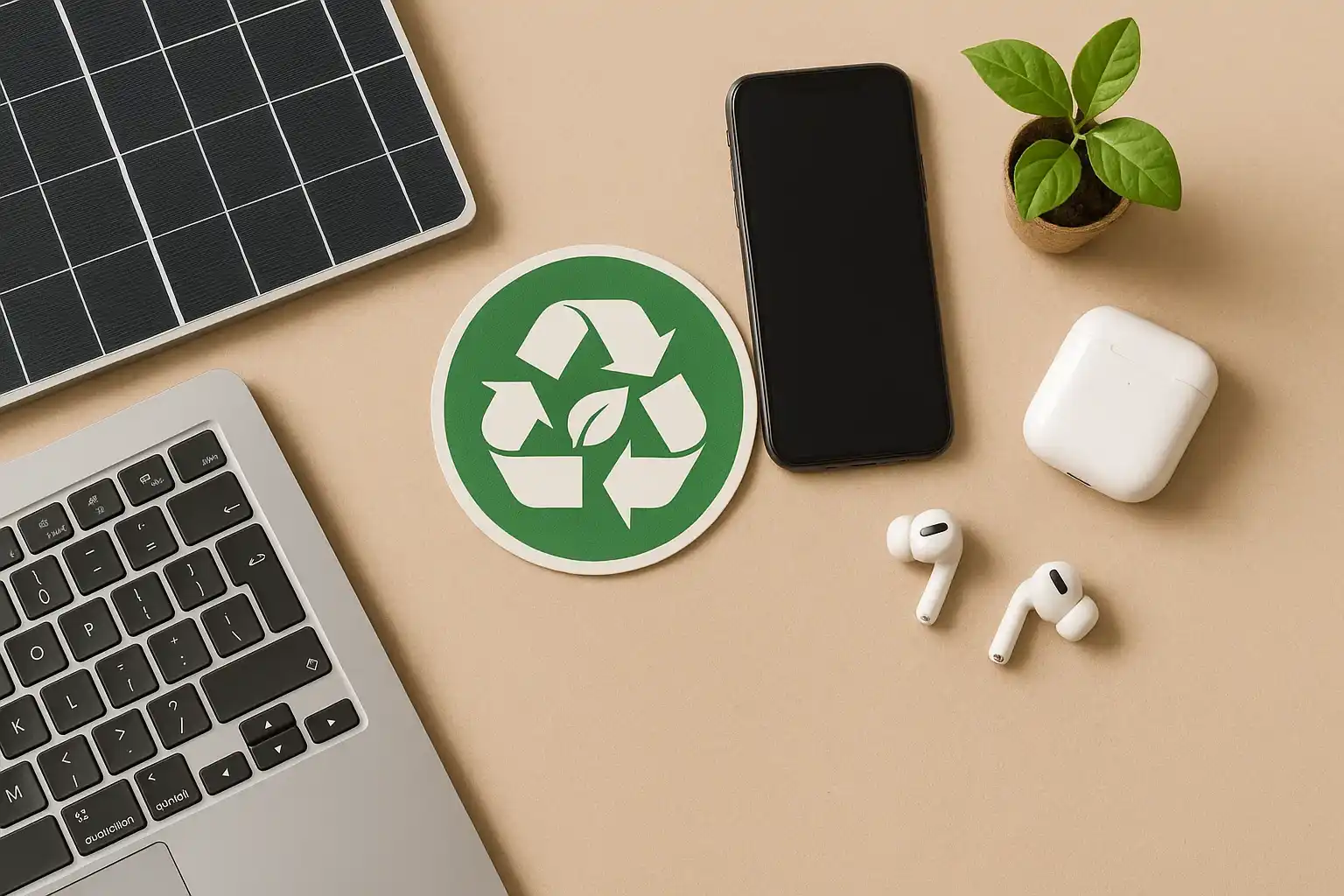The Human Cost of Connectivity: Supporting Ethical Tech Supply Chains

The sleek and sophisticated smartphones, laptops, and tablets that have become indispensable tools in our modern lives often conceal a complex and sometimes troubling reality: the intricate global supply chains that bring these devices to our hands can be fraught with ethical dilemmas. The relentless demand for the raw materials that power our connectivity, coupled with intense pressure to drive down manufacturing costs, has in some instances led to the exploitation of workers, the fueling of conflicts, and the disregard for environmental standards in the regions where these components are sourced and assembled.
Understanding the ethical challenges embedded within non-ethical tech supply chains is a crucial step towards becoming more conscious consumers and advocating for a more responsible technology industry. The choices we make when purchasing electronic devices can inadvertently contribute to or actively support practices that compromise human rights, environmental sustainability, and fair labor. By seeking out and supporting alternatives that prioritize fair trade, conflict-free materials, and transparent suppliers, we can leverage our purchasing power to encourage a more ethical and sustainable technology ecosystem. This shift in consumer demand can incentivize manufacturers to adopt more responsible practices throughout their complex networks.
The Moral Minefield: Ethical Concerns in Tech Supply Chains
The ethical concerns within the technology sector's supply chains are multifaceted and interconnected, spanning various stages from raw material extraction to final assembly:
Conflict Minerals: Fueling Violence and Exploitation
Certain essential minerals, including tin, tantalum, tungsten, and gold (often referred to as "3TG"), are vital components in electronic devices, used in everything from circuit boards to batteries. Tragically, the extraction and trade of these minerals in some regions, particularly in the Democratic Republic of Congo and surrounding areas, have been linked to armed conflicts, human rights abuses, and the funding of warring factions. These "conflict minerals" contribute to instability and suffering in already vulnerable regions. Supporting ethical tech brands often means choosing companies that are committed to responsible sourcing and ensuring that the minerals used in their products are certified as conflict-free through rigorous due diligence processes. Initiatives like the Conflict-Free Sourcing Initiative (CFSI), now the Responsible Minerals Initiative (RMI), work to establish transparent and ethical supply chains for these critical minerals, providing tools and resources for companies to trace and audit their mineral sourcing.
Labor Practices: The Hidden Human Toll
Beyond mineral sourcing, the labor practices employed in the manufacturing of electronic devices are another significant ethical consideration. The intense global competition to produce affordable gadgets has, in some cases, led to the exploitation of workers in factories, particularly in developing countries. Reports of long working hours, low wages, unsafe working conditions, restrictions on freedom of association, and the use of child labor have cast a shadow over the industry. Supporting ethical tech brands involves seeking out companies that prioritize fair wages, safe and healthy working environments, reasonable working hours, and the right to organize for workers throughout their supply chains. Transparency regarding factory audits and worker welfare programs is a key indicator of a company's commitment to ethical labor practices.
Environmental Degradation: The Footprint of Manufacturing
The production of electronic devices has a significant environmental footprint that extends beyond energy consumption. The extraction of raw materials, including metals and rare earth elements, can lead to habitat destruction, water pollution, and soil erosion. The manufacturing processes themselves often involve the use of hazardous chemicals and generate significant waste. Furthermore, the transportation of components and finished products across vast global distances contributes to greenhouse gas emissions. Ethical tech brands are increasingly focusing on minimizing their environmental impact through the use of recycled and sustainable materials, reducing waste in manufacturing, implementing energy-efficient production processes, and designing products for longer lifespans and easier recyclability. Transparency about their environmental policies and performance is crucial.
The Alternatives: Paving the Way for Ethical Tech
Fortunately, a growing number of companies and initiatives are striving to create a more ethical and sustainable technology industry, offering alternatives to traditional, often opaque, supply chains:
Fair-Trade Electronics: Prioritizing Worker Well-being
One promising alternative is the concept of fair-trade electronics. Inspired by the fair-trade movement in agriculture, this approach aims to ensure that workers involved in the manufacturing of electronic devices receive fair wages, work in safe conditions, and have the right to organize. While the fair-trade certification for electronics is still developing, companies that prioritize fair labor practices and demonstrate transparency in their supply chains are important to support. These companies often work closely with their suppliers to implement and monitor ethical labor standards, going beyond basic compliance with local laws.
Conflict-Free Materials: Ensuring Responsible Sourcing
Another crucial aspect of ethical tech supply chains is the commitment to sourcing conflict-free materials. Companies that prioritize this undertake rigorous due diligence to trace the origin of the minerals used in their products, ensuring that they are not contributing to conflict or human rights abuses. They often work with initiatives like the RMI to audit their supply chains and support responsible mineral sourcing from certified mines and smelters. Transparency about their mineral sourcing policies and audit results is a key indicator of their commitment.
Transparent Suppliers: Building Trust and Accountability
Supporting ethical tech also involves favoring companies that prioritize transparent suppliers. This means being open about who their suppliers are, where their components are manufactured, and the labor and environmental standards in those facilities. Transparency allows consumers and advocacy groups to scrutinize supply chains and hold companies accountable for their practices. Companies that publish supplier lists and audit reports demonstrate a greater commitment to ethical sourcing and manufacturing.
Empowering Ethical Choices: What You Can Do
As consumers, we have the power to influence the tech industry by making more informed and ethical purchasing decisions. By researching companies, asking questions about their supply chains, and supporting brands that prioritize fair labor, conflict-free materials, and transparency, we can collectively drive demand for more ethical electronics. Organizations like iFixit also provide valuable resources for understanding the repairability and ethical sourcing of various tech products. Choosing to buy from companies that are transparent about their practices and committed to ethical sourcing is a tangible way to support a more just and sustainable technology industry, sending a powerful message that ethical considerations are not secondary to innovation and profit.
Related Blogs

Neutralizing Your Tech Footprint: Choosing Carbon-Neutral Tech Purchases
Support climate action by opting for carbon-neutral certified tech and offset programs.

The Silent Energy Thief: Cutting Down Idle Device Usage for a Sustainable Digital Footprint
Improve energy efficiency and extend device life by implementing power-saving settings.

The Unseen Gigabytes: Cutting Your Streaming Carbon Footprint
Reduce your digital carbon footprint by adjusting streaming quality and habits.

Swipe Right on Sustainability: How Digital Decluttering Cultivates a Greener Lifestyle
Insights on digital decluttering for a greener lifestyle in a sustainable way.

Decoding Disposal: Your Essential Guide to Responsibly Recycling E-Waste
Insights on the rise of ethical tech in a sustainable way.

Surfing Sustainably: Unveiling the World of Eco-Friendly Browsing
Insights on eco-friendly browsing in a sustainable way.
Stay in the Loop
Get tips and insights tailored to your interests — no spam, just sustainability.